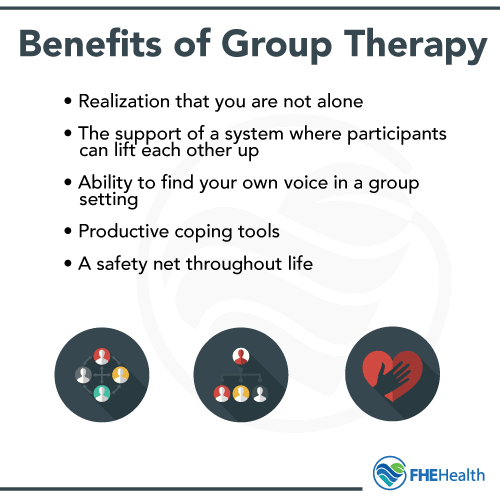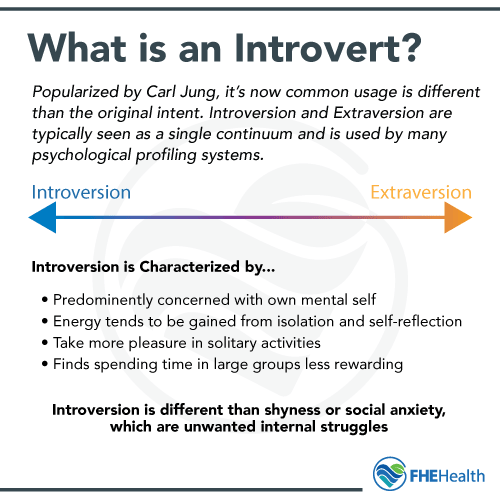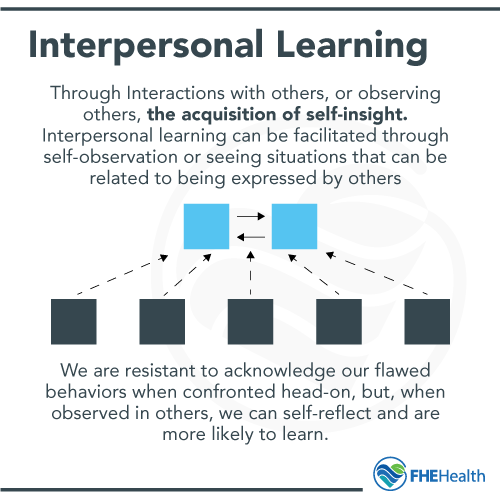
While some people thrive as the life of the party, others hate being the focus of attention. For these people, the idea of spending time in public, sharing personal stories with others or conversing with strangers is horrifying, not exciting. As such, group therapy doesn’t always sound like a good idea.
Whether you love or hate it, group therapy is a common component in treatment programs of all kinds. A way to teach lessons to a group of people who are all walking the same path, create a sense of camaraderie and help recovering addicts learn from one another, group therapy offers valuable opportunities for those in recovery. However, for introverts who don’t like to speak or interact in large groups, this useful form of therapy seems anything but.
If you are an introvert who is uncomfortable with the idea of group treatment, you’re not alone. However, the right guidance and structure can help you make the most of therapy — group or otherwise.
The Struggles of an Introvert in Support-Based Recovery
In many ways, the very existence of the current rehabilitation and treatment models relies on the support of others, be it your friends, family, counselors or fellow members of the recovery community. Those who thrive in a group of other people may embrace this process, but for introverts who prefer to spend time alone or one-on-one may find themselves on the outside, looking in. It’s hard to feel embraced by a process that requires activities that feel uncomfortable, awkward or stressful, particularly during such a vulnerable period of time.
As an introvert, sitting in a room surrounded by other people and talking about problems may be hard to manage. Being expected to share secrets with strangers, provide feedback about situations or even answer simple questions asked by a counselor becomes more frightening than helpful, raising complicated emotions that may worsen a desire to use instead of alleviating it. Adding further consternation to the introvert’s plight is that they’re told community is essential to their recovery! It’s true that part of the 12-steps is staying in constant contact with the group and ‘carrying’ your message to speak in front of others.
The fact is, group therapy truly is beneficial, which is why it plays a large role in the treatment process. Regardless of how you approach recovery, it is rare that you will find a rehabilitation program that does not include group therapy. However, how you are able to navigate your time in a group setting can depend both on the group in question as well as your own coping mechanisms.
Understanding Group Therapy
 For those who dislike groups of people, group therapy may seem counterintuitive, particularly when individual counseling is generally offered as a part of a rehabilitation program. However, group therapy does offer several benefits that are challenging to achieve in a one-on-one setting, providing tools that can help with recovery for both introverts and extroverts alike. Consider the benefits of group therapy including:
For those who dislike groups of people, group therapy may seem counterintuitive, particularly when individual counseling is generally offered as a part of a rehabilitation program. However, group therapy does offer several benefits that are challenging to achieve in a one-on-one setting, providing tools that can help with recovery for both introverts and extroverts alike. Consider the benefits of group therapy including:
- An emphasis that you are not alone — even though rehabilitation can feel isolating, group therapy teaches you that your experiences are not unique to you
- An additional support system in which recovering users can lift one another up and provide encouragement
- The ability to find your own voice and speak with confidence in a group setting
- More productive coping tools and a healthier outlet for emotions and anxiety
- A safety net when exploring new ideas or coming to terms with evolving feelings
In addition to these benefits, it’s also important for those participating in therapy to understand that not all group therapy programs are made equal. In some, sitting in the background and listening may be adequate. In others, however, more activity participation is expected and may even be a requirement of membership. However, please do not assume that these groups will not be advantageous to you; by learning to work with your introversion rather than letting it rule you, you can make the most of your time in a group setting.
In a rehabilitation center, active participation is often seen as essential. Members will be encouraged to speak during every meeting, respond to questions and share personal stories. An outpatient community program like Alcoholics Anonymous, however, may be different. In AA, you may be able to hang out in the back while listening to stories — many of which you will be able to relate to. As you become more comfortable with the group, sharing may eventually feel comfortable and natural.
Introversion as a Personality Trait
 Introversion is considered a basic personality trait that is characterized by an inward-facing personality rather than an outward one. Those who are introverted often prefer to reflect on their own thoughts, feelings and moods rather than seeking out stimulation from external sources.
Introversion is considered a basic personality trait that is characterized by an inward-facing personality rather than an outward one. Those who are introverted often prefer to reflect on their own thoughts, feelings and moods rather than seeking out stimulation from external sources.
There is a difference between social anxiety and introversion that is important to distinguish. While those who are introverted may feel as though they are this way because they are shy, are anxious in social situations or feel awkward talking with others, people who are introverted can and often do have good social skills. The two are not mutually exclusive, but one is not necessarily indicative of the other.
The most common traits that indicate introversion include:
- Exhaustion or low energy after spending time with groups of people
- An enjoyment of solitude
- A small group of close friends rather than a large group of casual friends
- An initial perception as quiet and not likely to open upon in an initial meeting
- Distraction and trouble focusing with too much external stimulation
- A high level of self-awareness
- Learning is more natural through watching
- An interest in independent jobs rather than careers in a group setting
Overcoming Introversion in a Therapeutic Setting
Introversion is considered a personality trait, so it’s not necessarily something that needs to be fixed — it’s a part of who you are. However, this does not mean that being an introvert is an excuse to shut other people out or reject all forms of group activity. Instead, it just means that you may need to learn different coping mechanisms than those who are comfortable spending time around people.
Interpersonal learning and interpersonal therapy can be beneficial ways for those who are naturally introverted to learn more about interactions with other people, and these kinds of interactions can improve performance in social settings.
What Is Interpersonal Learning?
 Interpersonal learning is a form of learning that relies on an ability to understand and relate to other people’s experiences and social situations. One of the eight key learning styles, this form of education and awareness stems from the opportunities in effective communication.
Interpersonal learning is a form of learning that relies on an ability to understand and relate to other people’s experiences and social situations. One of the eight key learning styles, this form of education and awareness stems from the opportunities in effective communication.
Group therapy is predicated largely on the principles of interpersonal learning. While in group treatment, participants are expected to listen to stories, share their own similar trials and tribulations and learn from the anecdotes shared by others.
Understanding the ways in which interpersonal learners operate can be a wonderful way to appreciate everything group therapy has to offer. By focusing closely on what others are saying and using their lessons and experiences to put your own into perspective, the objectives of group treatment will become more evident.
Interpersonal Therapy
Part of encouraging an interpersonal learning style may involve interpersonal therapy. A form of individual therapy that builds on the notion that most major life problems are a result of social and relationship issues, IPT focuses on tools to strengthen relationships and build social awareness to address problems stemming from this root. This kind of therapy generally has four areas of focus:
- Role transitions
- Role disputes
- Interpersonal deficits
- Unresolved grief
Working through these topics to find the base cause of a problem like addiction, from isolation to a bad breakup, can aid with coping mechanisms and help participants learn more about the effects relationships and connections can have on them. In the context of group therapy, this kind of counseling can make it easier to interact with others, open up, confess secrets and learn from the stories others have to share. While it won’t transform introverts into extroverts, IPT can teach valuable skills that make interacting with others more manageable.
Group therapy can be awkward for everyone, even those who are natural introverts. However, exploring other learning styles and partaking in forms of individual therapy, like IPT, can help introverts to become more comfortable forging relationships with others during the course of rehabilitation.
Read more on our blog ‘Social anxiety & Recovery‘






